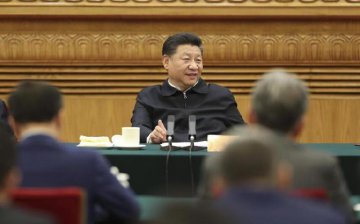
China vows to unswervingly encourage, support and guide the development of the non-public sector and support private enterprises, according to a symposium on the private sector held on Thursday.
With the improvement of the business environment, private enterprises are expected to make bigger contributions and win more opportunities in the way heading for high-quality development.
Here are some facts and figures about the development of China's private sector.
-- Private enterprises contributed to more than half of China's taxation, 60 percent of gross domestic product (GDP), 70 percent of technological innovation and new products, 80 percent of urban employment and 90 percent of new jobs.
-- Private investment has become one of the bright spots of China's economy amid downward pressure, with the growth 3.3 percentage points higher than the overall growth in the past three quarters.
-- In the first three quarters, private investment in manufacturing surged 9.5 percent year-on-year, which was 0.8 percentage points higher than the overall investment growth. Many provinces saw more than a 10-percent growth of private investment from the previous year, with the growth of Shaanxi Province and Hunan Province exceeding 20 percent.
-- The investment structure of private companies listed on the Shanghai Stock Exchange continued to upgrade, with the purchase or construction of long-term assets and R&D expenditure surging 38 percent and 33 percent year-on-year, respectively.
-- China's average newly established enterprises reached 18,400 per day in the January-September period, with private companies accounting for more than 90 percent.
-- In the past five years, the number of market entities rose by nearly 80 percent. The number of private enterprises rose 146 percent, with the total registered capital posting an almost six-fold increase.
-- More than 1,200 projects were introduced to private investors in the sectors including transportation, energy, ecology and environmental protection, with the total investment exceeding 2.5 trillion yuan. By the end of September, the investment of projects which private investors were interested in has exceeded 250 billion yuan.
-- Linking Hangzhou, Shaoxing and Taizhou, China's first high-speed railway controlled by private investment was officially approved this year. Such projects were expected to increase with private capital and being eligible to access more areas.
-- By the end of August, projects with private enterprises as leading or solo winning bidders reached 3,800, accounting for almost 47 percent of projects under the public-private partnership.























Latest comments